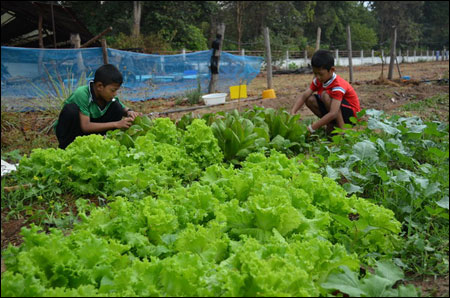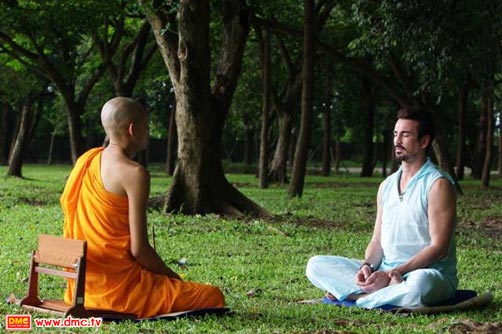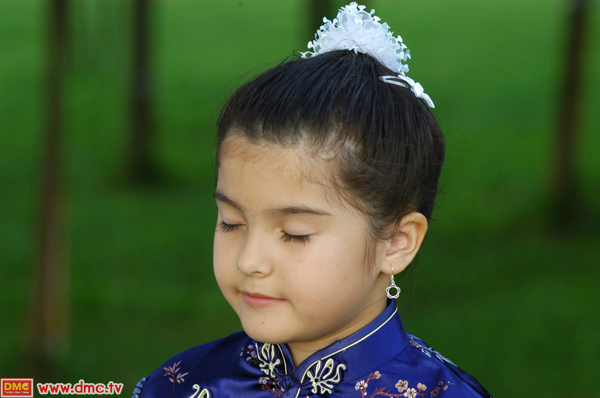MeditationMeditation for PeaceDo good Deeds Always Bring Favorable Outcomes?Do good Deeds Always Bring Favorable Outcomes.Whenever someone is facing a situation which he considers unfair, he will start to think, “there is no such thing as good deeds always bringing favorable outcomes; bad deeds can also bring favorable out comes, too.” The fallacy of this notion stems from the expectation that good deeds will produce immediate outcomes, and the narrow view of someone who is being rewarded for his bad conduct. On the surface, that person may be enjoying the fruits of his bad deeds. But look closely, he is very worried of being attacked or arrested by the police. His gratification is temporary, but his fear stays with him.I is important to teach our children when they are young to believe that good deeds always bring favorable outcomes, and vice versa. Otherwise they will doubt this principle, and may think that doing good is only for fools, a belief to which some adults subscribe.However, the first step in achieving this goal is to convince the parents that good deeds always bring good outcomes, and vice versa. The following episode should help clarify this principle.A layperson asked a respected senior monk:“Venerable One, do good deeds always bring good outcomes? I have seen many friends doing good, but not receiving anything good in return.”The senior monk answered, “Do not waste your time doubting this Law of Kamma. The Enlightened One had proof of this, thousands of years ago. But there are still so many people, including you, who still have doubts because you are hasty, expecting to see the outcomes immediately, and forgetting about common sense.“So let me give you an example. If we plant a seedling from a banana tree today, can we expect to eat bananas from that seedling today? No, we have to wait for almost a year, and while waiting, we have to water it, turn over the soil, and take good care of it. Otherwise, after a year, we may end up eating scrawny bananas.“And if you ask me if we get anything out of it while waiting, the answer is yes. Once we have planted that offshoot, we can take satisfaction in knowing that we have done it at the right time. We can have banana leaves for wrapping desserts, banana blossoms to eat with condiments. And yet we sfill have to wait a full year for the fruit.when we continue doing the good deeds for months or years,the fruit of the good deeds will start to show as fortune and success."The first stage of good deeds: Once we have done something good, no matter if anybody sees it or not, the first thing we get is self-satisfaction.“The second stage of good deeds: When we keep doing good deeds, the second thing we get is the development of an upright personality, comparable to getting banana leaves for wrapping desserts.“The third stage of good deeds: And when we continue doing the good deeds for months or years, the fruit of the good deeds will start to show as fortune and success. We will begin to see that our life becomes agreeable, our efforts become fruitful. We feel good about ourselves; this is comparable to enjoying the banana blossoms.“The fourth stage of good deeds: And if we keep repeating our good deeds, soon we will be placed in high esteem by society.“When we plant the banana of shoot, it takes at least a year before we get to enjoy its fruit. By the same token, it takes time before our good deeds are recognized, so don’t be hasty.“Most people will expect their good deeds to bear fruit right away, but meanwhile they will try to make offerings to spirits to make the outcomes of their bad deeds go away. And when somebody else has done something bad, which happens to adversely affect them, they will expect those culprits to be punished immediately.“Actually these impatient persons expect that only their good deeds will bear fruit immediately, and this will make them happy. On the contrary when they lie, and their teeth happen to fall out instantaneously, they will feel that this is unfair. This is only human, expecting only favorable outcomes. But when it is not instant, they will start to doubt the Law of Kamma.“So from now on, you should not be hasty and only expect favorable outcomes. You should be impartial. But in order to achieve this, you will need to meditate a lot.”From what the senior monk has explained, we see that we have to follow through when doing good deeds, that is, they have to be the right deeds, performed to the fullest extent of our ability, and done in the right measure, for them to be effective. This is how we can set an example for our children to make them firmly believe that good deeds will always bring favorable outcomes, and vice versa.
ซีรีย์ที่เกี่ยวข้อง
Tags : #Meditation #good deeds #favorable outcomes #Law of Kamma #self-satisfaction #upright personality #fortune #success #patience in good deeds #meditation benefits #Dhammakaya Temple #Good Deeds #Kamma #Meditation #Meditation Techniques #Mindfulness #Personal Development #self-improvement #spiritual growth












